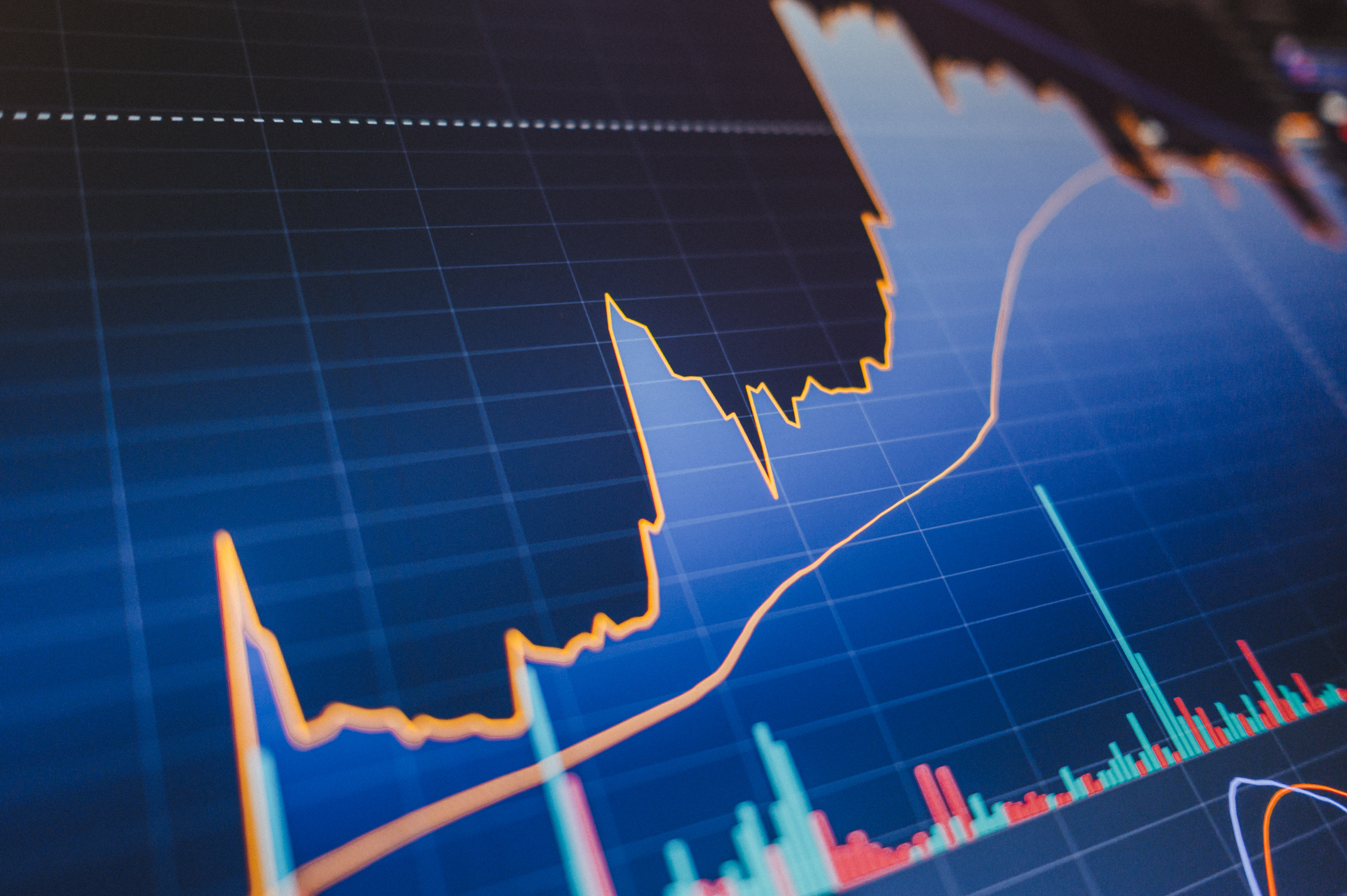Maintaining Good Credit In Times Of Inflation
The term “inflation” refers to an increase in prices and a decrease in an individual person’s purchasing power.1 This can happen for a variety of reasons, from simple explanations like supply chain issues or higher production costs to a complicated network of multiple factors.2

During periods of high inflation, you need more money to purchase the same things you could previously get for a lower cost. This in and of itself does not affect your credit score; that is, your credit score is not directly tied to any of the factors of inflation.3 However, inflation can indirectly impact your score if it leads to credit-damaging behaviors such as:
- Racking up too much credit card debt
- Applying for new credit too often
- Making late payments
- Skipping payments entirely
Here’s how you can avoid these pitfalls and maintain good credit.
Stay On Top Of Payments
When things cost more, you may feel like you’re in a financial pressure cooker. It can be tempting to let previous financial obligations - including credit card payments - slip through the cracks. However, your repayment history counts for approximately 35% of your credit score, making it the single most important factor in calculating your score. Falling behind on your payments can cause your score to drop very quickly, so you’ll want to continue paying off your credit cards as you navigate inflationary periods.
If managing multiple credit card payments with volatile interest rates is more than you can manage, consider a debt consolidation loan through Upgrade. When you take out a debt consolidation loan, you’ll use the funds to pay off your separate credit cards; and after that, you’ll just make one payment per month at a fixed interest rate. As long as you stay on top of those payments and don’t add new balances to your credit cards, you should see progress as your debt chips away.
Mind Your Credit Utilization Ratio
A “credit utilization ratio” is the balance on your credit card(s) relative to their total limit(s), both individually and collectively. This is the second-biggest factor in calculating your score (payment history being the first), accounting for up to 30% of your overall score.4
You can calculate yours by dividing your credit card balances by their total limits; for example, if you have one credit card with a limit of $10,000 and a balance of $2,500, your credit utilization for that card would be 25%. If you added a second card with a limit of $750 and a balance of $75, your utilization for that card would be 10%, while your overall utilization for both cards combined would be around 24%.
A low credit utilization ratio shows lenders you can handle your finances without turning to credit to solve your problems. As a general rule, your credit utilization should stay below 30% if you want to maintain good credit, so try to avoid paying for things with your credit card.
Keep New Applications to A Minimum
Applying for and accepting new credit usually results in a “hard inquiry” on your credit report. Each hard inquiry docks a few points off your credit score and remains on your credit report for about 24 months, so try not to apply for new credit unless you absolutely need it. And if you do need to apply for a new credit card or personal loan, evaluate your options carefully before making any decisions so you only need to apply for credit once.
Revisit Your Budget
People with good credit tend to have several habits in common, one of which is not spending more than they’re regularly bringing in. They typically accomplish this by setting and committing to a budget, or a plan that allows them to spend more mindfully.
If you’ve never had a budget before, now is the time to begin with a simple quick-start budget; and if you were already managing your finances with a budget, revisit it with new costs in mind. Either way, remember that budgeting isn’t a “set it and forget it” thing. Especially in our unpredictable market where the cost of living can bounce up and down, budgeting requires regular check-ins and (if necessary) revisions in order to be most effective. Make this a recurring habit by reviewing your spending often, tracking your performance, and making any necessary adjustments.
Prioritize Building An Emergency Fund
Though inflation and recessions are not exactly the same thing, they can be closely related. According to Forbes magazine, high inflation can indicate that a recession is coming, and in some cases responses to inflation can trigger a recession itself.5 Since recessions almost always increase your chances of losing your job, having your work hours cut, or having your income reduced in another way, an “emergency fund” (i.e. a stash of money you save specifically for financial emergencies) is vital to weathering an economic downturn without relying on credit.
Even if your paychecks keep coming and stay the same throughout volatile economic periods, an emergency fund provides a cushion to fall back on when/if unexpected expenses like car or home repairs, doctor visits, or travel needs arise. The more you can rely on your emergency fund, the less likely you are to rack up extra credit card debt and/or apply for new credit in financially stressful situations. This can help your credit utilization ratio remain steady and prevents new applications from dinging your credit score.
How to Start An Emergency Fund
If you’ve never built an emergency fund before, it can be difficult to know where to begin. Here are some tried-and-true tips to help you get started.
- Set a small goal. Conventional wisdom says that your emergency fund should equal three to six months’ worth of living expenses, but that number can seem intimidatingly large to many people, particularly if you have high living expenses and/or are also trying to pay off debt.6 If you're concerned about your ability to reach that goal, start with a smaller one like $500 or $1,000.
- Use a cash windfall if you get one. Maybe you got a bonus from work, or your tax return was larger than you thought it would be. Whatever the case, if you receive an unexpected sum of money, consider using it to jumpstart your emergency fund.
- Set up automatic transfers to your savings account. Most banks give you an option to transfer a set amount of money from a checking account to a savings account when your checks get deposited each payday. This can be an effective savings tool, especially since the money disappears almost immediately from your checking account. If you don’t see it, you may feel less tempted to spend it!7
Get more tips with our guide to building an emergency fund.
Monitor Your Credit Regularly
Frequently checking your credit score is one of the best ways to maintain good credit. It alerts you to possible problems and opportunities for improvement; plus, you can get the information you need to bring your score back up if it slips and will have an opportunity to look for and report errors such as inaccurately listed credit applications, wrong balance information, or incorrect payment records. Your report can also alert you if you’ve fallen victim to identity theft.
Where to Get Your Credit Report
You’re entitled to one free copy of your credit report per year from each of the main credit bureaus (TransUnion, Equifax, and Experian.) And for round-the-clock access to your credit score, as well as weekly updates and personalized credit-boosting recommendations, use Upgrade’s own Credit Health monitoring tool!
Inflation and Identity Theft
A survey from Equifax revealed that reports of identity theft increase in times of inflation, making it more important than ever to be on your guard and vigilantly keep an eye out for signs of fraud.8 Signs of identity theft include:
- A sudden and unexpected drop in your credit score
- Accounts in your name that you don’t recognize
- Records of unpaid debts, bankruptcies, collections, etc that aren’t yours9
If you spot any of these, immediately report the issue to your bank(s) and at identitytheft.gov.
Keep A Healthy Perspective
Inflation can affect how you view your finances and your overall life, whether you make six figures or live paycheck-to-paycheck. According to a July 2022 survey, many households living on shoestring budgets are being spread even thinner, while those with money in the bank are seeing its worth rapidly decrease.10 They may worry about the cost of living outpacing their earnings, their credit scores falling, and/or their investments losing value. These worries may lead to “financial stress,” a circular relationship between money and mental health where you spend money unnecessarily to make yourself feel better and then worry about what you’ve spent, which can then trigger further unhealthy spending patterns.
Here are some tips for breaking that cycle and keeping things in perspective.
- Focus on what you can control. You may not be able to control what happens in the larger economy, but you can control many aspects of how you handle it. Rather than obsessing over possible challenges (e.g. layoffs, hour reductions, increased cost of living), focus on what you can do to mitigate them if they happen, such as budgeting carefully, saving more money, and paying off debt.
- Stay grateful. In a conversation with NerdWallet, financial planner Meghaan Lurtz said “gratitude can help to quell that ‘I need more, I need different, I need this, I need that’ feeling.”11 The less you feel the need to obtain new things, the less you are likely to spend. This “attitude of gratitude” makes it easier to stick to your budget, save money, and avoid swiping your credit card needlessly.
- Remain optimistic. Inflation can be stressful, but remember the old saying “what goes up must come down.” The factors that caused a high inflationary episode are likely to resolve and eventually prices will begin to drop. Until then, maintain responsible habits and hope for better days ahead.
We’re Here to Help!
Your finances can be tricky, but we’d love to be your financial ally through it all. We work with our bank partners to help consumers access:
- Personal loans
- Credit lines
- Rewarding checking and savings accounts
- And more
We also invite you to follow us on Facebook and Instagram for advice on managing credit, budgeting responsibly, and saving money.
- Inflation: What It Is, How It Can Be Controlled, and Extreme Examples, Investopedia
- What Causes Inflation?, US News
- How Does Inflation Affect Your Credit?, Experian
- What Is A Credit Utilization Rate?, Experian
- Inflation vs. Recession, Forbes
- Emergency Fund Calculator: How Much Will Protect You?, NerdWallet
- Split Direct Deposit: A Simple Way to Save More Money, Bankrate
- Survey: Inflation, Gas Prices, and Paying Bills At the Forefront of Many Consumers' Minds in 2022, Equifax
- Identity Theft: What It Is, How to Prevent It, Warning Signs and Tips, NerdWallet
- Financial Anxiety Is Increasing As Inflation Surges and People Are Living Paycheck-to-Paycheck, Forbes
- How Gratitude Can Help Your Financial Life, NerdWallet


